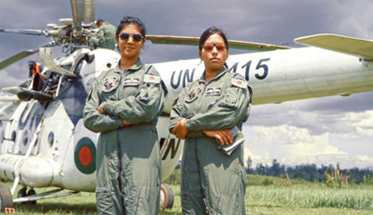

23rd November 2022 (10 Topics)
Context
At the inaugural of India-ASEAN Defence Ministers’ Meeting at Siem Reap in Cambodia to commemorate the 30th Anniversary of India-ASEAN relations, the Indian defence Minister has made a proposal to include an initiative for women in United Nations Peacekeeping (UNPK) operations.
Key highlights of the event:
The two proposals have been put forward by India for expanding the scope and the depth of the India-ASEAN (Association of Southeast Asian Nations) defence relations.
- Role of women in peacekeeping: One of the initiatives proposed was the ‘India-ASEAN Initiative for women in UNPK operations’ which includes:
- To conduct tailor-made courses for women peacekeepers of ASEAN member states at the Centre for United Nations Peacekeeping in India and
- To conduct a ‘Table Top Exercise’ in India for women officers from ASEAN incorporating facets of UNPK challenges.
- Plastic: The second initiative on ‘marine plastic pollution’ includes channelizing the ‘energy of the youth’ towards addressing the critical issue of marine pollution highlighting the significant work done by the NCC in the cleaning of Indian beaches and raising awareness about plastic pollution in the coastal community.
- India also has emphasised on the need for both countries to work together for capability building in critical domains such as military aviation, artificial intelligence and cyber technology.
- The centrality of ASEAN in the Indo-Pacific region is the cornerstone of India’s Act East Policy.

Role of Women in UN Peacekeeping:
- Peacekeeping is a cornerstone of the UN's peace and security work, and women peacekeepers are a key to its success.
- Today, more women serve in leadership positions in UN Peacekeeping than ever before.
- Women serve in the UN as part of the military, the police and as civilians.
- UN Peacekeeping is committed to the full implementation of Security Council resolution 1325 on “Women, Peace and Security”, which calls for the full realization of the rights of women to sit at both the political table and as the protectors of peace in their own countries.
|
Benefits of inclusion of women:
- They strive to be role models for local women and girls while overcoming dangerous challenges in the regions.
- They can serve in positions of leadership, as well as military observers, staff officers and troops.
- They can carry out patrols, plan operations, fly helicopters, perform medical outreach, help clear minefields, engage with local communities and much more.
- Their efforts help protect civilians, deter attacks and help to provide the security necessary for all components of peacekeeping operations to carry out their mandated activities. ?
|
ASEAN-India relations:
|



